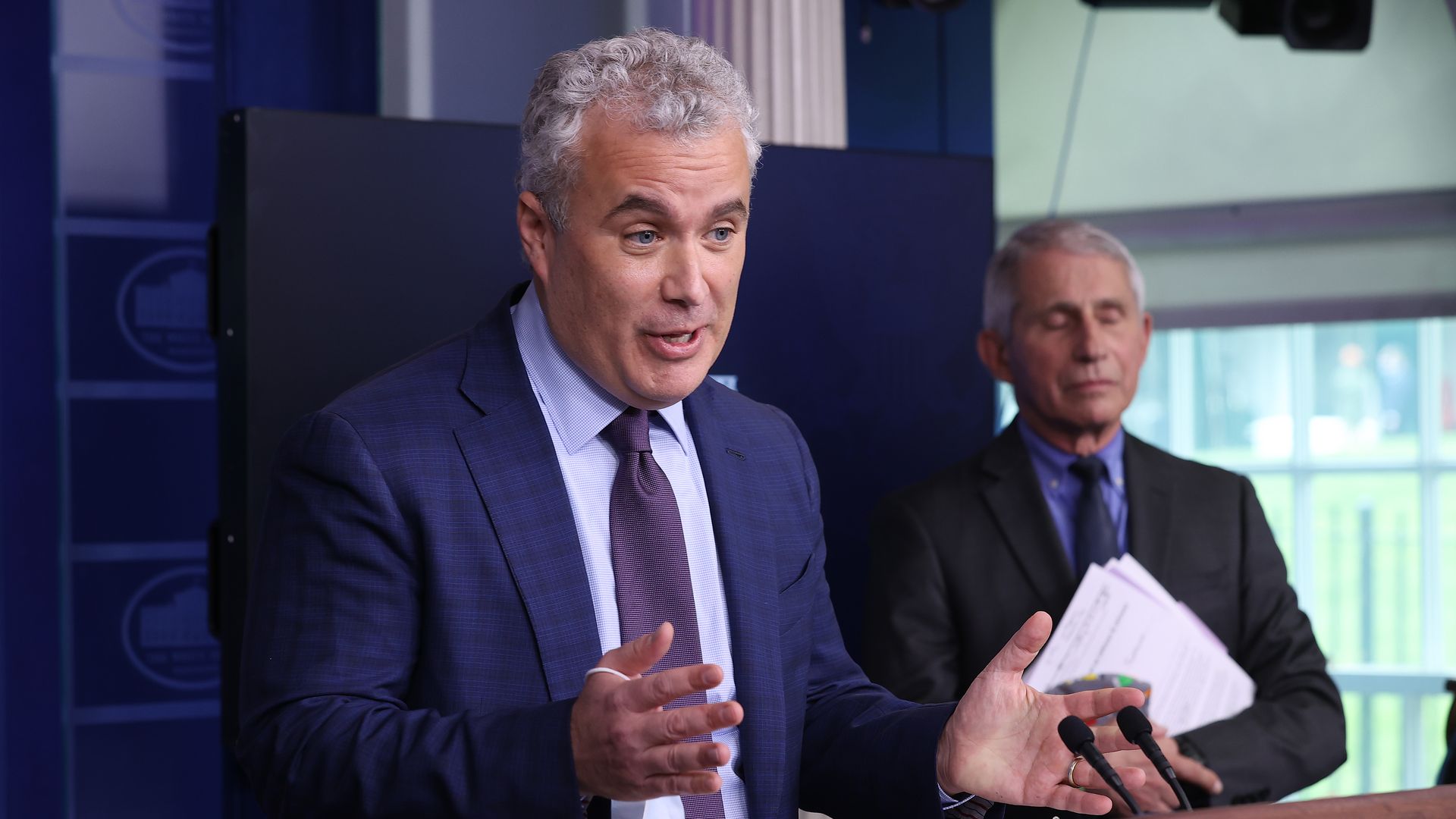Apr 5, 2022 - Health
White House COVID chief: "It's in our national interest" to vaccinate world
Add Axios as your preferred source to
see more of our stories on Google.

White House COVID-19 response coordinator Jeff Zients (left) and Anthony Fauci, director of the National Institute of Allergy and Infectious Diseases, brief reporters at the White House on April 13, 2021. Photo: Chip Somodevilla via Getty Images
